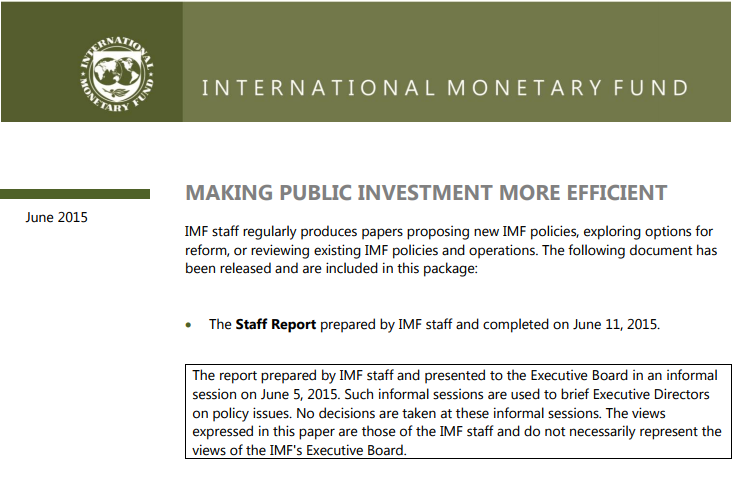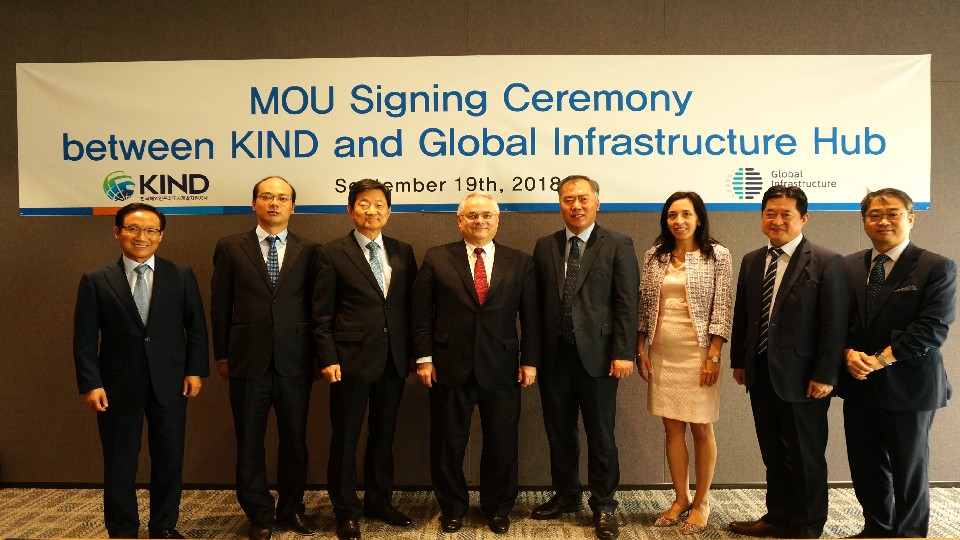1740 results found
Featured results



More results
The MDBs’ Joint Declaration of Aspirations on Actions to Support Infrastructure Investment is a tool developed to ensure that MDBs work together to scale up infrastructure investment and attract private sector investment.

The Global Infrastructure Hub is pleased to announce the signing of a Memorandum of Understanding (MOU) with the Korea Overseas Infrastructure and Urban Development Corporation (KIND)
Parties involved (public and private): Greater Amman Municipality
The report “Making Blended Finance work for the SDGs” supports the OECD DAC blended principles for unlocking commercial finance for SDGs and further sharpens their focus on the deployment of development and commercial finance on the objectives of development.


This paper finds that better Public Investment Management enhances public infrastructure quality and economic growth, and pinpoints key institutional reforms needs to boost public investment efficiency and productivity.


Japan's Program for Earthquake-Resistant School Buildings has increased the seismic safety of Japanese schools, and hence increased the safety of Japanese schoolchildren, teachers, and communities. Since 2003, when the program accelerated, the share of earthquake-resistant public elementary and junior high schools has increased, from under half of schools in 2002 to over 95 percent in April 2015. Japan is sharing knowledge from this program with developing countries through its relationship with the Global Facility for Disaster Reduction and Recovery (GFDRR), whose Global Program for Safer Schools has been supported by the Japan–World Bank Program for Mainstreaming Disaster Risk Management in Developing Countries and its implementing arm, the Disaster Risk Management Hub, Tokyo.
District heating (DH) is the most common form of heating for urban dwellings and businesses in many of the EBRD’s countries of operations (CoOs).

To close the infrastructure gap in a sustainable recovery, we need more greenfield infrastructure, with environmental sustainability at its core. This requires innovative funding models and public-private partnerships (PPPs), particularly in emerging economies where private investors are more reluctant to invest and greenfield infrastructure need is greatest.
The COVID-19 pandemic has disrupted all of our lives. And amidst the crisis it is impossible to envision how long it will last, or how life will be different once it is over. On the issue of mobility, however, a recent report by McKinsey & Co offers an optimistic forecast: this short period of disruption won’t affect existing major trends.
This G20 Eminent Persons Group on Global Financial Governance report recommends reforms to the global financial architecture and governance of the system of International Financial Institutions (IFIs), aiming to promote economic stability and sustainable growth and consider how the G20 could better provide continued leadership and support for these goals.

The Management Framework: Assessment Process document is a guide to Alberta Infrastructure and Transportation s approach to assessing and approving public-private partnerships for capital infrastructure projects.

The study has found that the main impacts of hydropower development in Bhutan relate to aquatic biodiversity and are cumulative,meaning that they are not of immediate concernbut should get priority attention once the development of hydropower accelerates. This study has identified a number of gaps inthe management of E&S impacts and rankedthem according to relevance for Bhutan.

This document outlines the discussion about lessons for Karachi surrounding Water and Sanitation (W&S) services reform in large cities and urban areas elsewhere in the world.

The PPP Contract Management Tool provides public sector officials with practical guidance and case studies, so that those responsible for managing contracts after financial close are better able to ensure project objectives and value for money.

This second report of the Business Working Group, \"Managing transnational infrastructure programmes in Africa - Challenges and best practices\", identifies the key hurdles that have to be overcome.

This study provides an overview of the water security situation in the People’s Republic of China.

Marie Lam-Frendo will step down from her role as GI Hub CEO as her term concludes.



Parties involved (public and private): Fotowatio Renewable Ventures B.V. (Developer), R2E2 Fund (on behalf of Republic of Armenia), EBRD and IFC (Lenders), CMEC (EPC), ENA (Off-taker)
The project represents the most important tourism and transportation infrastructure proposal for the south-southeast region of the country.



 Infrastructure Outlook
Infrastructure Outlook




